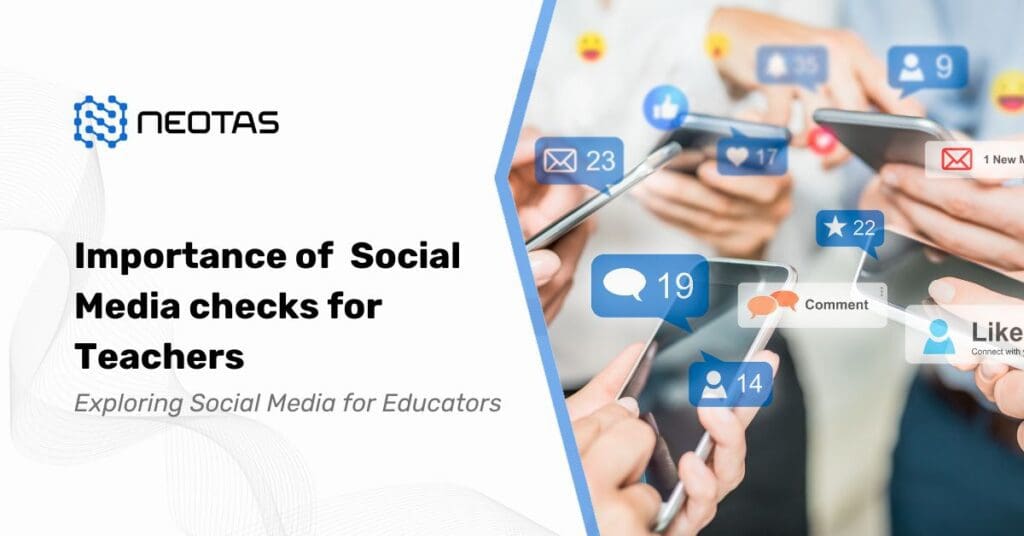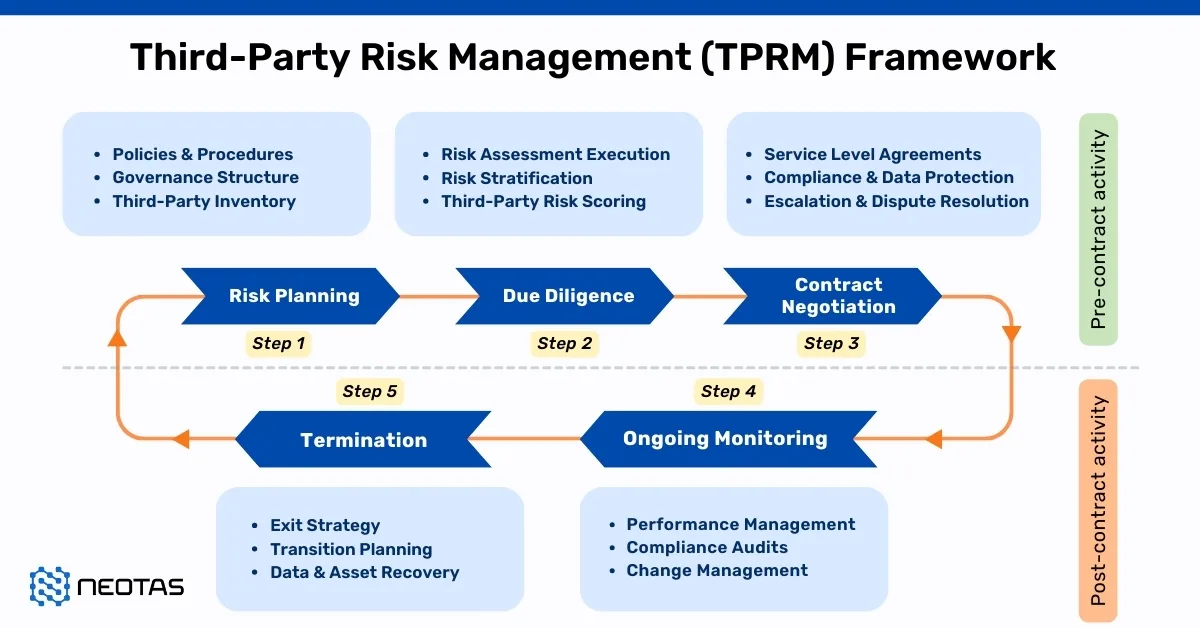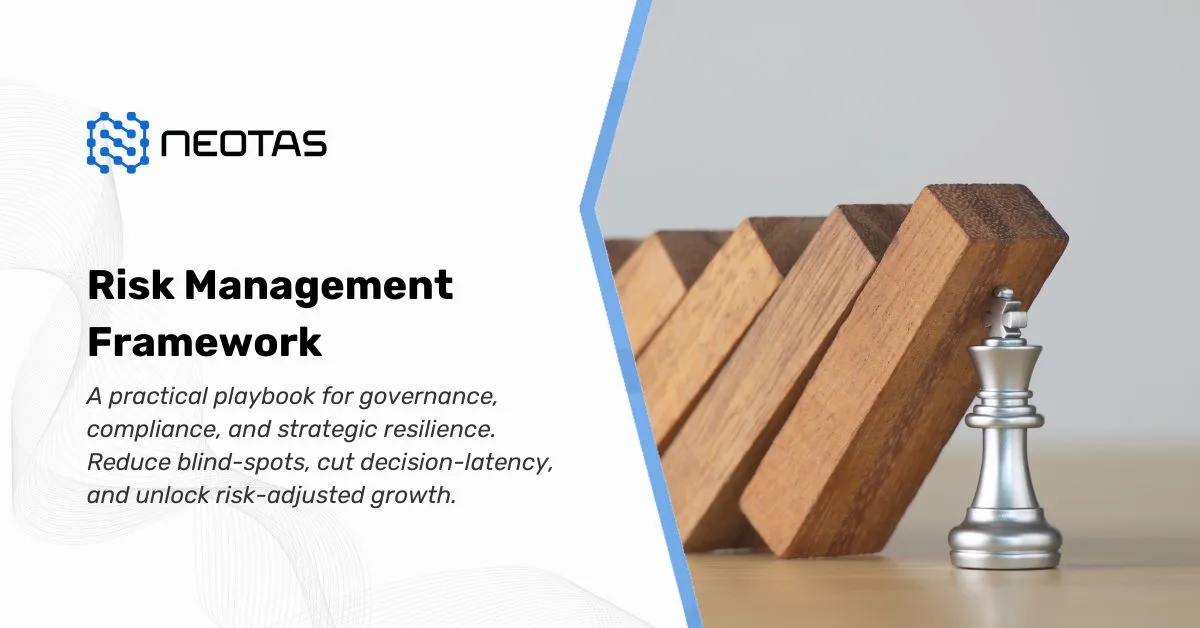Social Media Checks for School Staff
Social Media Screening Checks for Education Industry To Aid Safeguarding
The Department of Education (DfE) is consulting on changes to the Keeping Children Safe in Education statutory guidance, to include the recommendation of social media background checks and adverse internet checks on prospective teachers.
The proposed changes would be set to come into effect from September 2022, ahead of the new school year. They would apply to England only but the devolved UK governments could soon follow suit.
What is the statutory guidance?
The Keeping Children Safe in Education statutory guidance outlines recommendations for schools and colleges on safeguarding children.
The updated version for 2022 comes into force on 1st September and includes guidance for the Education sector on the recruitment and selection process, regulated activity and recommended background checks.
What recommendations are being made?
Under the statutory guidance, recommendations are being made for the process of shortlisting candidates. Currently, the process must include a self-declaration of a candidate’s criminal history, as well as declarations relating to their qualifications and eligibility for teaching in the UK.
Crucially, the guidance now also recommends that “online searches” should also be undertaken:
“As part of the shortlisting process] Schools and colleges should consider carrying out an online search as part of their due diligence on the shortlisted candidates. This may help identify any incidents or issues that have happened, and are publicly available online, which the school or college might want to explore with the applicant at interview.”
These additional online searches have been recommended to supplement traditional background checks. They include screening a candidate’s online activity, including social media, as well as any relevant adverse media relating to the candidate online.
Conducting these checks at the shortlisting phase when hiring will help exclude inappropriate candidates from the later stages of the recruitment process, improving hiring efficiencies.
Recent Case Study: Senior Manager With Hidden Abusive Past
Social media policies for teachers
Education employers will now almost universally have a strict social media policy relating to the conduct of staff online, with clear behavioural guidelines.
These guidelines will typically include interaction and engagement with students and their families online but wider behaviour online should also be considered.
Social media screening checks will review online activity and check whether a teaching candidate displays behaviours that would make them unsuitable for this particular role, or whether their online activity could potentially bring the institution’s reputation into disrepute.
Why conduct additional background checks on teachers and education staff?
A growing number of sectors, now potentially including Education, are using online reputation screening to assess shortlisted employment candidates or existing employees.
What was once a “nice to have” check has now become a fundamental element of a robust hiring process, supplementing existing screening procedures.
Increasingly, this type of screening is being adopted by industries whose employees are responsible for handling the vulnerable, such as teachers, as an added measure of risk management.
Over thousands of social media background checks, we have proven their effectiveness at identifying potentially behavioural risk, which would have gone unnoticed by traditional screening methods.
Here are examples of the types of “red flags”, or risks, which are typically uncovered in these types of online searches:
- Extreme views and opinions
- Hate and discriminatory behaviour
- Inappropriate or undesirable content
- Illegal activities
- Addiction and substance abuse
- Violent content
- Sexually explicit content
Safeguarding children and protecting institutional interests
Conducting online reputation screening on prospective teaching candidates can help identify problematic or dangerous behaviours that wouldn’t be included in a CV or typically exhibited in an interview.
These checks help screen the attitude, as well as the aptitude of a hiring candidate. Additionally, the school, university or teaching facility can protect themselves, students and staff from the wider impact of employing a “bad apple”, including:
- Avoiding the time and monetary cost of a bad hire
- Protecting the children from a loss of productivity
- Safeguarding against reputational loss to the institution, as any negative act of an employee in the media could be associated with the employer
- Maintaining a positive workplace culture within the faculty, as a bad employee can negatively impact the whole team and be detrimental to the overall culture
Recent examples
In our 2021 Employment Screening Annual Report, we revealed that up to 16% of cases displayed at least one high-risk behaviour in their online activity. As these behaviours would generally go unnoticed using traditional background checks, this could be the difference between safeguarding children and exposing them to a potentially dangerous individual.
In July 2022, a teacher in the US was fired and investigated by the police after he was found to have been trying to meet up with a minor. While a person is under investigation or faces allegations, their criminal record remains untarnished, meaning this behaviour would not appear in traditional background checks.
Another US school teacher was previously fired following her sharing a series of racist messages online. A teacher in the UK was recently also removed from her post, following an investigation that cited her damaging comments online about students and her employers.
Why you should use third-party specialists
As experts in online reputations screening, we welcome the potential introduction of these checks to the Education industry. They are already a crucial element of the hiring process for thousands of businesses in the UK and will certainly enable more proficient, effective, data-driven safeguarding procedures when screening potential teaching roles or education support staff.
Social media background checks should always be conducted by third party specialists like Neotas. Checks conducted internally could lead to accusations of bias or breaches of GDPR, which could have costly consequences in the future.
To find out more about social media and online searches, schedule a call with our team today.
FAQs for Social Media Checks for Education Industry:
What are social media checks for the education industry? Social media checks in the education industry involve reviewing an individual’s online presence on social media platforms to gather information about their behavior, character, interests, and suitability for admission or employment in educational institutions.
Why do educational institutions perform social media checks on potential students or employees? Educational institutions conduct social media checks to gain additional insights into an individual’s background, values, and behavior. It helps them assess whether the person aligns with the institution’s values, exhibits appropriate behavior, and presents no concerns that might affect the learning environment or the institution’s reputation.
What information do educational institutions typically look for during social media checks? During social media checks, educational institutions may look for posts, photos, or comments that provide insights into an individual’s character, professionalism, judgment, discriminatory behavior, involvement in illegal activities, or any content that may raise concerns about their suitability for admission or employment.
Are social media checks legal in the education industry? The legality of social media checks may vary depending on the jurisdiction and local regulations. It is important for educational institutions to comply with applicable privacy laws and guidelines while conducting these checks to ensure they respect individuals’ rights and maintain compliance with relevant regulations.
Can social media checks impact a student’s chances of admission or employment in the education industry? Yes, social media checks can have an impact on an individual’s chances of admission or employment in the education industry. If the information discovered during the check raises concerns or reflects negatively on the person’s character, it may influence the institution’s decision-making process.
How can individuals protect their privacy during social media checks? To protect their privacy during social media checks, individuals can review and adjust their privacy settings on social media platforms to control who can view their posts and information. It is also advisable to think twice before posting or sharing content that could be considered inappropriate or potentially damaging to their reputation.
Are there any specific social media platforms that educational institutions focus on during their checks? Educational institutions typically focus on popular social media platforms such as Facebook, Twitter, Instagram, LinkedIn, and sometimes even review blogs or personal websites. The platforms chosen may vary depending on the institution’s policies and the relevance of the platform to the individual’s admission or employment application.
How far back do social media checks typically go? The timeframe for social media checks can vary. Some institutions may review a few months’ worth of posts, while others might go back several years. The extent of the check often depends on the institution’s policies and the importance of the position or program for which the check is being conducted.
Can educational institutions use social media checks to monitor current students or employees? Educational institutions may have policies in place that allow them to monitor the social media activity of current students or employees, particularly if there are concerns related to inappropriate behavior, violations of policies, or potential threats to the institution’s reputation. However, this practice should be done in accordance with applicable privacy laws and guidelines.
Are there any guidelines or regulations governing social media checks in the education industry? Guidelines and regulations governing social media checks in the education industry can vary by jurisdiction and country. It is advisable for educational institutions to consult legal professionals and adhere to relevant privacy laws, such as data protection acts or regulations, when conducting social media checks to ensure compliance and protect individuals’ privacy rights.
Social media background checks for Education Industry:
Social Media Checks for the Education Industry: In an increasingly digital world, the online presence of educational institutions and professionals matters more than ever. Explore the importance of comprehensive social media checks to ensure a positive reputation, safeguard students, and maintain trust. Discover how monitoring and managing online profiles can bolster recruitment efforts, enhance credibility, and mitigate potential risks. Stay ahead in the competitive landscape of the education sector by implementing effective social media strategies and best practices. Join us as we delve into this critical aspect of modern education management.
Have got more questions about social media checks and social media screening services?
Schedule a call with our team today.
Neotas Social Media Background Checks and Social Media Screening
At Neotas, We understand the importance of conducting thorough and compliant Social Media Screening Checks, and our team of experts is dedicated to ensuring that the process is safe and reliable. Receive accurate and up-to-date information while complying with all relevant regulations, including GDPR and FCRA. Our advanced OSINT technology and human intelligence allow us to uncover valuable insights that traditional checks may miss.
Ready to experience the future of social media checks?
Schedule a call today and let’s revolutionize your social media checks together! Learn more about how we can help you conduct background checks in a safe and compliant manner.
Related Content on Social Media Screening, Background Checks, and Social Media Background Check
- OSINT Background Check | What Makes Neotas Different?
- Social Media Background Checks For Education Industry
- Social Media Check For Teachers
- Social Media check for Lawyers and other legal professionals
- Social Media Check for doctors and healthcare specialists
- Social Media Check for Police Officers
- How Social Media Screening Benefits Our Clients
- AI-Based Social Media Checks Without Human Intervention
- Avoid the cost of a bad hire with online reputation screening
- The Truth About Social Media Screening And GDPR
- How GDPR and FCRA Apply to Social Media Background Checks — The Do’s and Don’ts of Social Media Background Checks for Employers
- Social Media Screening Webinar — Vero Screening X Neotas
- Neotas Online & Social Media Screening Video
- Pre-Employment Background Checks and Social Media Screening – What NOT To Do
- Online Reputation Screening Uncovers Piracy & Data Leak History For Candidate
- Pre Employment Social Media Screening Helps Firm Avoid Abusive Hiring Candidate
Neotas Social Media Screening and Online Reputation Screening Services:
- Online Reputation Screening
- Social Media Screening
- Social Media Check
- OSINT Framework, OSINT Tools, OSINT Techniques, and how to use OSINT framework.
- Follow us on LinkedIn for the latest updates on Neotas Screening Solutions.



 New Whitepaper and Checklist
New Whitepaper and Checklist
























